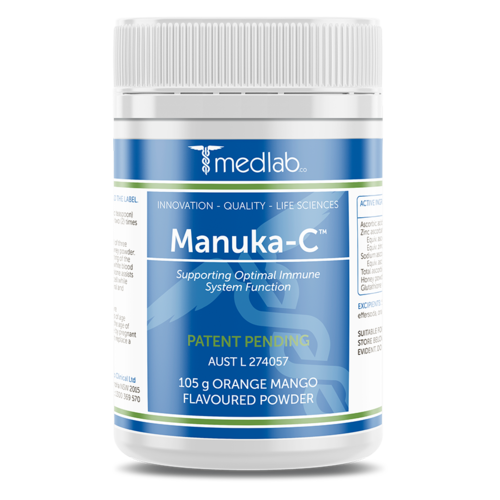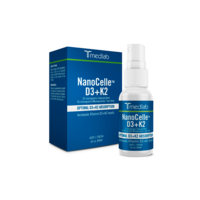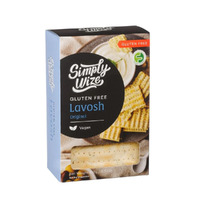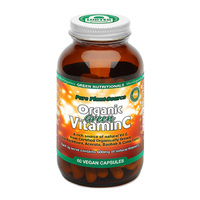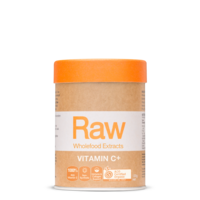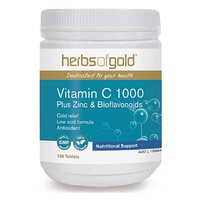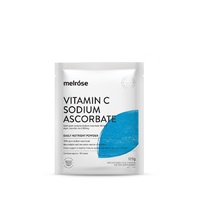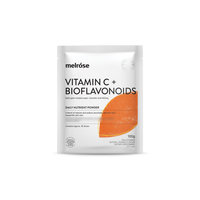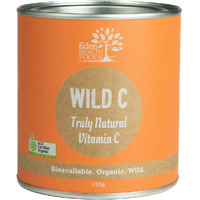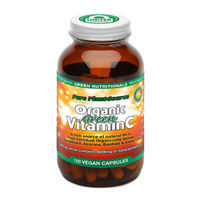Welcome to our website. If you continue to browse and use this website, you are agreeing to comply with and be bound by the following terms and conditions of use, which together with our privacy policy govern Glo Health Pty Ltd’s relationship with you in relation to this website. If you disagree with any part of these terms and conditions, please do not use our website.
The term ‘Glo Health Pty Ltd' or ‘us’ or ‘we’ refers to the owner of the website whose registered office is Suite 3, Level 2, 612-616 St Kilda Road Melbourne ,Vic 3004. Our ABN is 18 746 362 099. The term ‘you’ refers to the user or viewer of our website.
The use of this website is subject to the following terms of use:
- The content of the pages of this website is for your general information and use only. It is subject to change without notice.
- Neither we nor any third parties provide any warranty or guarantee as to the accuracy, timeliness, performance, completeness or suitability of the information and materials found or offered on this website for any particular purpose. You acknowledge that such information and materials may contain inaccuracies or errors and we expressly exclude liability for any such inaccuracies or errors to the fullest extent permitted by law.
- Your use of any information or materials on this website is entirely at your own risk, for which we shall not be liable. It shall be your own responsibility to ensure that any products, services or information available through this website meet your specific requirements.
- This website contains material which is owned by or licensed to us. This material includes, but is not limited to, the design, layout, look, appearance and graphics. Reproduction is prohibited other than in accordance with the copyright notice, which forms part of these terms and conditions.
- All trademarks reproduced in this website, which are not the property of, or licensed to the operator, are acknowledged on the website.
- Unauthorised use of this website may give rise to a claim for damages and/or be a criminal offence.
- From time to time, this website may also include links to other websites. These links are provided for your convenience to provide further information. They do not signify that we endorse the website(s). We have no responsibility for the content of the linked website(s).
- Your use of this website and any dispute arising out of such use of the website is subject to the laws of Australia.
Deliveries
We dispatch orders from Melbourne on business days only (Mon to Fri). We will endeavour to pack and send your order the same day it is received (excluding weekends), however sometimes an item may be unavailable.
In this case we will try to contact you so that you can decide whether to wait until all the missing stock arrives, or to amend your order accordingly.
Our shipping rates are as follows:
*Victoria, Tas, NSW, ACT - $10 Flat Rate
*QLD & SA - $12.50 Flat Rate
*NT & WA - $15.50 Flat Rate
SPECIAL OFFER: ALL ORDERS OVER $100 WILL BE SENT FREIGHT-FREE to anywhere in Australia
Please Note: We reserve the right to alter our delivery charges at any time. Our 'Flat Rate' delivery charges are only available for major Australian metropolitan areas. If your order needs to be delivered to areas of Australia that incur significantly higher shipping changes, we may need to alter your shipping charges accordingly (we will always contact you before making any such changes).
Terms & Conditions
Your access to and use of all information on this website including purchase of our product/s is provided subject to the following terms and conditions.
We reserve the right to amend this Notice at any time and your use of the website following any amendments will represent your agreement to be bound by these terms and conditions as amended.
ACCOUNTS
It is essential to create an account in order to make purchases on this website. Please refer to our Privacy Policy for information relating to our collection, storage and use of the details you provide on registration.
You agree to ensure that your registration details are true and accurate at all times and you undertake to update your registration details when they change.
On registration you agree to pay for our services as set out on our website.
We reserve the right to terminate your account at any time if you breach these terms and conditions.
OUR WEBSITE SERVICES
All prices are in Australian Dollars (AUD) and are inclusive of GST (where applicable). We endeavour to ensure that our prices are current, however we reserve the right to amend our prices at any time. If you have placed an order, we undertake to fulfil your order at the price listed at the time of purchase.
PRODUCT DESCRIPTIONS
We strive to ensure that our products are described as accurately as possible on our website. Where we become aware of any discrepancies in descriptions, we reserve the right to correct any error or omission. Unless expressly indicated in the product description, Glo Health is not the manufacturer of the products sold on our website. While we work to ensure that product information on our website is correct, manufacturers may alter their product information. Actual product packaging and materials may contain more and/or different information than shown on our website. You should always read the labels, warnings and instructions provided with the product before using it and not solely rely on the information presented on our website. Images have been provided for illustrative purposes only and we do not guarantee that any image will reproduce in true colour nor that any given image will reflect or portray the full design or options relating to that product. If you have any specific product queries, please contact the manufacturer.
PRODUCT ORDERS
Our products are for sale only to adults over the age of eighteen (18) years. By proceeding to purchase through our website, you acknowledge that you are over 18 years of age.
We endeavour to ensure that our product list is current however we give no undertaking as to the availability of any product advertised on our website at a given point in time.
Packaging and postage is an additional charge, calculated at time of purchase.
When you order from us, we require you to provide your name, address for delivery, your email address, telephone contact and credit card details. We undertake to take due care with this information; however, in providing us with such information you accept that we are not liable for its misuse due to error in transmission due to virus or malware.
PRODUCT RETURNS
We undertake to reimburse you for any product delivered to you that is faulty or is in a damaged condition, or was delivered in error. If you wish to return a faulty or damaged product, you must notify us through our designated Contact Us page within 5 working days of receipt of goods.
If we are unable at the time of return to replace or exchange returned goods, we undertake to reimburse your credit card for the amount initially debited for the purchase including postage charges.
Product returns for change of mind or any other reason are not accepted.
Discount codes
Discount codes can be used one time per customer only. No other discounts apply when using a discount code. Discount codes are not applied to shipping costs.
SITE ACCESS
When you visit our website, we give you a limited licence to access and use our information for personal use.
You are permitted to download a copy of the information on this website to your computer for your personal use only if you do not delete or change any copyright symbol, trademark or other proprietary notice. Your use of our content in any other way infringes our intellectual property rights.
Except as permitted under the Copyright Act 1968, you are not permitted to copy, reproduce, republish, distribute or display any of the information on this website without our prior written permission.
The licence to access and use the information on our website does not include the right to use any data mining robots or other extraction tools. The licence also does not permit you to metatag or mirror our website without our prior written permission. We reserve the right to serve you with notice if we become aware of your metatag or mirroring of our website.
HYPERLINKS
This website may from time to time contain hyperlinks to other websites. Such links are provided for convenience only and we take no responsibility for the content and maintenance of or privacy compliance by any linked website. Any hyperlink on our website to another website does not imply our endorsement, support, or sponsorship of the operator of that website nor of the information and/or products which they provide.
Linking our website is not permitted. We reserve the right to serve you with notice if we become aware of such linking.
INTELLECTUAL PROPERTY RIGHTS
The copyright to all content on this website including graphics, images, layouts, and text belongs to us or else we have a licence to use those materials.
All trademarks, brands and logos generally identified either with the symbol’s TM or ® which are used on this website are either owned by us or we have a licence to use them. Your access to our website does not license you to use those marks in any commercial way without our prior written permission.
Any comment, feedback, idea or suggestion (called “Comments”) which you provide to us through this website becomes our property. If in future we use your Comments in promoting our website or in any other way, we will not be liable for any similarities which may appear from such use. Furthermore, you agree that we are entitled to use your Comments for any commercial or non-commercial purpose without compensation to you or to any other person who has transmitted your Comments.
If you provide us with Comments, you acknowledge that you are responsible for the content of such material including its legality, originality and copyright.
DISCLAIMERS
Whilst we have taken all due care in providing the information on our website, we do not provide any warranty either express or implied including without limitation warranties of title or implied warranties of merchantability or fitness for a particular purpose.
To the extent permitted by law, any condition or warranty which would otherwise be implied into these terms and conditions is excluded.
We also take all due care in ensuring that our website is free of any virus, worm, Trojan Horse and/or malware, however we are not responsible for any damage to your computer system which arises in connection with your use of our website or any linked website.
LIMITATION OF LIABILITY
To the full extent permitted by law, our liability for breach of an implied warranty or condition is limited to the supply of the goods and/or services again or payment of the costs of having those goods and/or services supplied again.
We accept no liability for any loss whatsoever including consequential loss suffered by you arising from product/s we have supplied.
INDEMNITY
By accessing our website, you agree to indemnify and hold us harmless from all claims, actions, damages, costs and expenses including legal fees arising from or in connection with your use of our website.
FORCE MAJEURE
If a Force Majeure event causing delay continues for more than 14 Days, we may terminate this Agreement by giving at least 7 Days’ Notice to you. “Force Majeure” means any act, circumstance or omission over which we could not reasonably have exercised control.
JURISDICTION
These terms and conditions are to be governed by and construed in accordance with the laws of Victoria and any claim made by either party against the other which in any way arises out of these terms and conditions will be heard in Victoria and you agree to submit to the jurisdiction of those Courts.
If any provision in these terms and conditions is invalid under any law the provision will be limited, narrowed, construed or altered as necessary to render it valid but only to the extent necessary to achieve such validity. If necessary, the invalid provision will be deleted from these terms and conditions and the remaining provisions will remain in full force and effect.
PRIVACY
We undertake to take all due care with any information which you may provide to us when accessing our website. However, we do not warrant and cannot ensure the security of any information which you may provide to us. Information you transmit to us is entirely at your own risk although we undertake to take reasonable steps to preserve such information in a secure manner.
Our compliance with privacy legislation is set out in our separate Privacy Policy which may be accessed from our home page.
Privacy Policy
DATED: 15th May 2021
This website is owned and operated by Glo Health Pty Ltd (ACN: 149468566) trading as Glo Health, and will be referred to as “we”, “our” and “us” in this Internet Privacy Policy. By using this site, you agree to the Internet Privacy Policy of this website (“the website”), which is set out on this website page. The Internet Privacy Policy relates to the collection and use of personal information you may supply to us through your conduct via the website.
We reserve the right, at our discretion, to modify or remove portions of this Internet Privacy Policy at any time. This Internet Privacy Policy is in addition to any other terms and conditions applicable to the website.
We recognise the importance of protecting the privacy of information collected about visitors to our website, in particular information that can identify an individual (“personal information”). This Internet Privacy Policy governs the way your personal information, obtained through the website, will be dealt with. We welcome your comments and feedback.
Personal Information
Personal information about visitors to our site is collected only when knowingly and voluntarily submitted. For example, we may need to collect such information to provide you with further services or to answer or forward any requests or enquiries. We will never sell, exchange or otherwise distribute your personally identifiable information, except to the extent required by law. We do not retain the information longer than necessary for normal operations. It is our intention that this policy will protect your personal information from being dealt with in any way that is inconsistent with applicable privacy laws in Australia.
Use of Information
Personal information which visitors submit to our site is used only for the purpose for which it is submitted or for such other secondary purposes that are related to the primary purpose unless we disclose other uses in this Internet Privacy Policy or at the time of collection.
Credit Card Details
Credit Card details are stored on a secure server and are not accessible by our staff. They are used for the sole purpose of processing payment and will be deleted after payment is processed.
Disclosure
Apart from where you have consented or disclosure is necessary to achieve the purpose for which it was submitted, personal information may be disclosed in special situations where we have reason to believe that doing so is necessary to identify, contact or bring legal action against anyone damaging, injuring, or interfering (intentionally or unintentionally) with our rights or property, users, or anyone else who could be harmed by such activities. Also, we may disclose personal information when we believe in good faith that the law requires disclosure.
We may engage third parties to provide you with goods or services on our behalf. In that circumstance, we may disclose your personal information to those third parties in order to meet your request for goods or services.
Security
We strive to ensure the security, integrity and privacy of personal information submitted to our site
We will endeavour to take all reasonable steps to protect the personal information you may transmit to us or from our online products and services. Once we do receive your transmission, we will also make our best efforts to ensure its security on our systems.
All of your sensitive private information, including password, bank / credit card details etc. is transmitted over the Internet via 128-bit SSL encryption. No sensitive information will ever be sent via email. This ensures that no data can be intercepted on the way to and from our server.
In addition, our employees and the contractors who provide services related to our information systems are obliged to respect the confidentiality of any personal information held by us. However, we will not be held responsible for events arising from unauthorised access to your personal information.
Collecting Information for Users
Network Traffic Logs
While ensuring network security and consistent service for all users, we employ software programs to do such things as monitor network traffic, identify unauthorized access or access to non-public information, detect computer viruses and other software that might damage our computers or the network, and monitor and tune the performance of our network. During such monitoring, these programs may detect such information as e-mail headers, addresses from network packets, and other information. Information from these activities is used only for the purpose of maintaining the security and performance of our networks and computer systems. Personally, identifiable information from these activities is not released to external parties without your consent unless required by law.
Our web site routinely collects and stores information from online visitors to help manage the site and improve services. This information includes the pages visited on this site, the date and time of the visit, the internet address (URL or IP address) of the referring site, the domain name and IP address from which the access occurred, the version of browser used, the capabilities of the browser, and search terms used on our search engines. This site makes no attempt to identify individual visitors from this information: any personally identifiable information is never released to external parties, unless required by law.
If you find any links to external websites on our website, please understand that we do not control these sites and resources, do not endorse them, and are not responsible for their availability, content, or delivery of services. External sites are not bound by our online privacy policy; they may have their own policies or none at all.
Cookies and Applets
We use cookies to provide you with a better experience. These cookies allow us to increase your security by storing your session ID and are a way of monitoring single user access. This site may use cookies for two purposes: to carry data about your current session at the site from one web page to the next, and to identify you to the site between visits. If you prefer not to receive cookies, you may turn them off in your browser, or may set your browser to ask you before accepting a new cookie. forward them to any external parties. We do not use cookies to track your movement among different web sites and do not exchange cookies with other entities.
Access to Information
We will endeavour to take all reasonable steps to keep secure any information which we hold about you, and to keep this information accurate and up to date. If, at any time, you discover that information held about you is incorrect, you may contact us to have the information corrected.
In addition, our employees and the contractors who provide services related to our information systems are obliged to respect the confidentiality of any personal information held by us.
Problems or Questions
If we become aware of any ongoing concerns or problems with our web site, we will take these issues seriously and work to address these concerns. If you have any further queries relating to our Privacy Policy, or you have a problem or complaint, please contact us.
For more information about privacy issues in Australia and protecting your privacy, visit the Australian Federal Privacy Commissioner’s web site; http://www.privacy.gov.au/.


